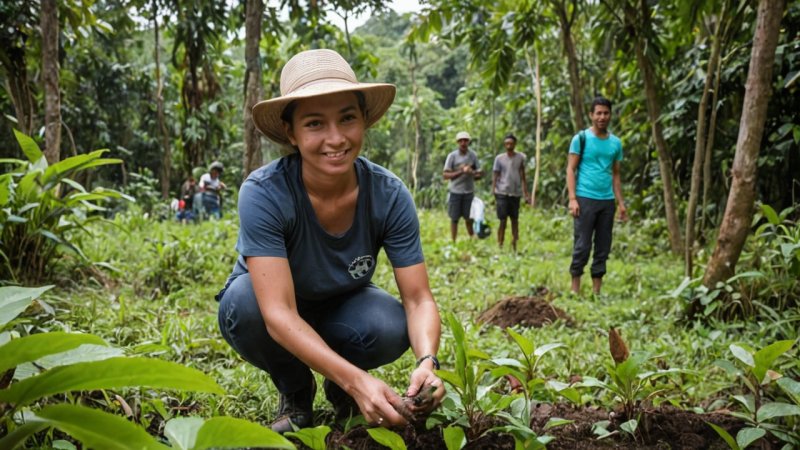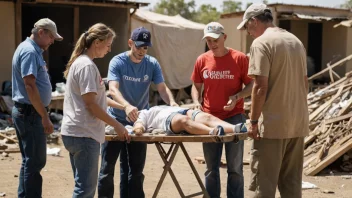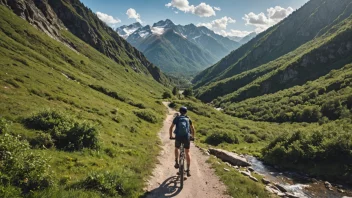Traveling offers us the opportunity to explore the wonders of the world, but it also presents the responsibility to protect the environments we visit. As travelers, we have a unique chance to engage with local communities and contribute to conservation efforts that preserve natural habitats, wildlife, and cultural heritage. By participating in these initiatives, not only do we enrich our travel experiences, but we also leave a positive impact on the places we cherish. In this article, we will explore various ways to get involved in local conservation efforts while traveling, ensuring that our journeys contribute to a sustainable future.
Understanding the Importance of Conservation
Before diving into the various ways to participate in conservation efforts, it’s crucial to understand why conservation is vital. The natural world is facing unprecedented challenges, including habitat destruction, climate change, and pollution. Tourism, while beneficial to local economies, can exacerbate these issues if not approached responsibly. Engaging in conservation efforts helps mitigate these impacts, protect biodiversity, and support local communities that depend on natural resources for their livelihoods.
Researching Eco-Friendly Destinations
Choosing the right destination is the first step in participating in conservation efforts. Look for destinations known for their commitment to sustainability and conservation. These locations often have established programs focused on preserving their natural resources and wildlife. Websites dedicated to eco-friendly travel can provide insights into destinations that prioritize conservation, enabling you to make informed choices about where to visit.
Volunteering with Local Organizations
One of the most direct ways to contribute to conservation is by volunteering with local organizations. Many regions have non-profits or community groups that focus on environmental protection, wildlife conservation, or habitat restoration. Whether it’s helping to clean beaches, planting trees, or assisting in wildlife research, volunteering allows travelers to make a tangible impact. Here are a few tips for finding the right opportunity:
- Do Your Research: Look for reputable organizations that align with your interests. Websites like VolunteerMatch or local tourism boards can provide leads.
- Consider Short-Term Projects: If your travel schedule is tight, look for organizations that offer short-term volunteer opportunities.
- Be Open-Minded: Sometimes, conservation efforts might not be what you expect. Be prepared for hands-on work that may involve physical labor.
Participating in Eco-Tours
Eco-tours are another excellent way to engage with conservation while traveling. These tours are designed to minimize environmental impact and educate participants about local ecosystems. Many eco-tours contribute a portion of their profits to conservation efforts, ensuring that your travel dollars support local initiatives. When choosing an eco-tour, look for operators that are certified by recognized environmental organizations, as this can be a sign of their commitment to sustainable practices.
Supporting Local Conservation Projects
While traveling, you can also support local conservation projects financially. Many communities have initiatives focused on protecting their natural resources, but they often rely on donations and support from visitors. This could be as simple as contributing to a local wildlife sanctuary, adopting a coral reef, or funding a community-based conservation project. Not only does this support help sustain their efforts, but it also fosters a sense of connection to the place you are visiting.
Practicing Responsible Tourism
Every traveler has the responsibility to practice responsible tourism. This means being mindful of your environmental footprint and respecting local cultures and ecosystems. Here are some practices to consider:
- Leave No Trace: Always clean up after yourself and minimize waste during your travels.
- Respect Wildlife: Observe animals from a distance and avoid feeding or disturbing them.
- Choose Sustainable Accommodations: Opt for hotels or lodges that implement eco-friendly practices, such as using renewable energy and reducing water consumption.
Engaging with Local Communities
Engaging with local communities can also enhance your understanding of conservation issues. Consider taking part in community-led workshops or cultural experiences that highlight the relationship between local people and their environment. When you support local artisans, farmers, or guides, you help sustain their livelihoods, which in turn fosters a sense of stewardship for their natural surroundings.
Sharing Your Experience
Once you have participated in local conservation efforts, share your experiences with others. Use social media platforms or travel blogs to raise awareness about the importance of conservation. By sharing your stories and insights, you inspire others to take part in eco-friendly travel practices and support local initiatives. Highlighting the positive impacts of your involvement can encourage more travelers to contribute to conservation efforts while exploring the world.
Conclusion: Every Action Counts
Participating in local conservation efforts while traveling not only enriches your journey but also contributes to the well-being of the planet. By researching eco-friendly destinations, volunteering, supporting local projects, practicing responsible tourism, and engaging with communities, you can make a significant impact. Remember, every little action counts, and as travelers, we have the power to create positive change in the places we visit. So, the next time you plan a trip, think about how you can leave a legacy of conservation behind, ensuring that future generations can also enjoy the beauty of our world.






